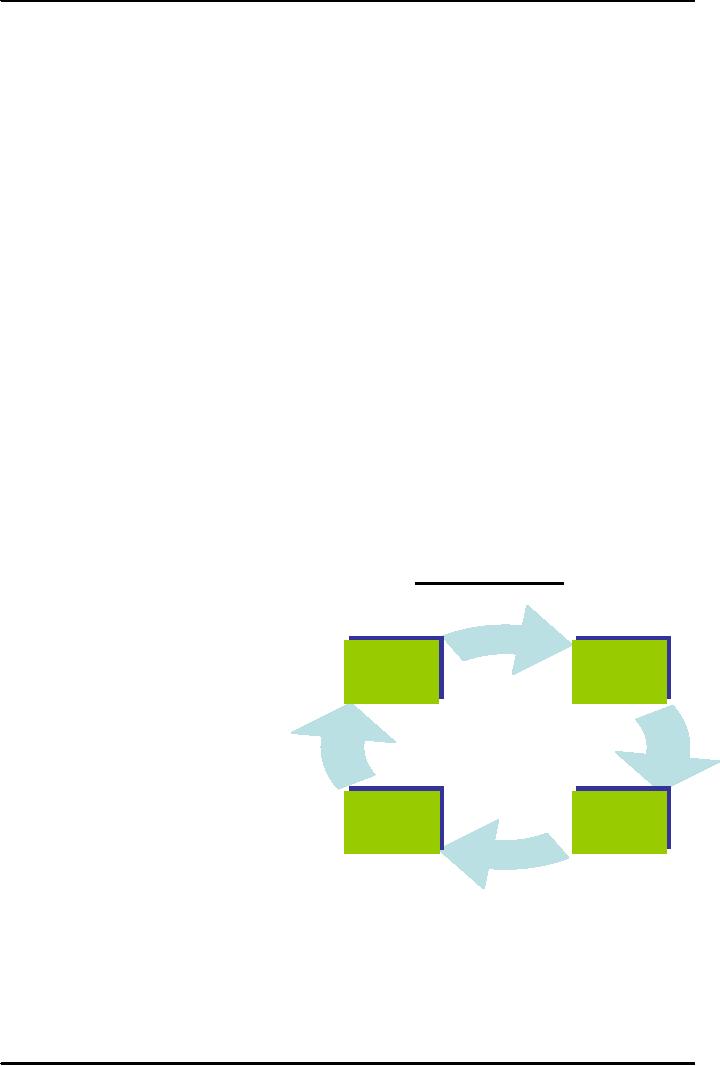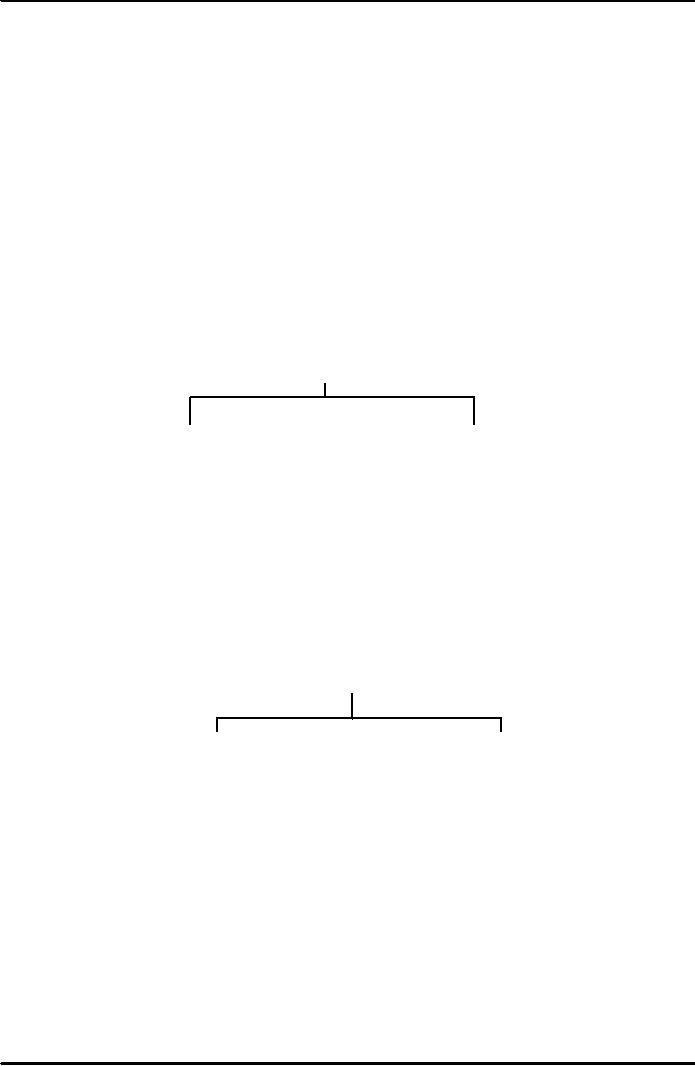 |
INTRODUCTION:CONCEPT OF BUSINESS, KINDS OF INDSTRY, TYPES OF TRADE |
| ORGANIZATIONAL BOUNDARIES AND ENVIRONMENTS:THE ECONOMIC ENVIRONMENT >> |

Introduction
to Business MGT 211
VU
Lesson
01
INTRODUCTION
CONCEPT OF
BUSINESS
Literally,
the word "business" means
the state of being busy.
Generally, the term
business
includes
all human activities
concerned with earning
money. In other words,
business is an
activity
in which various persons
regularly produce or exchange
goods and services for
mutual
gain
or profit. The goods
and services produced or
purchased for personal use
are not
included
in "business".
DEFINITION
1.
According
to L. H. Haney
"Business
may be defined as human
activities directed toward
providing or acquiring
wealth
through buying and selling
of goods."
2.
James
Stephenson says
that:
"Every
human activity which is
engaged in for the sake of
earning profit may be
called
business."
3.
In
the words of B. W.
Wheeler
"An
institution organized and
operated to provide goods
and services to the
society,
under
the incentive of private
gain" is business.
Structural
Diagram
CHARACTERISTICS
Buying
and
Selling
Business
Following
are the essential
characteristics of
a
good business:
1.
Capital
Capital
is the lifeblood of
every
business.
It is the most essential
and
important
element of business. In case
of
Buying
and
deficiency,
loans can be taken from
various
Wealth
Selling
financial
institutions.
2.
Creation of Utility
Utility
is an economic term referring to
that characteristic of a
certain
commodity, which
can
satisfy any human need.
Business creates utility,
which gives benefit to the
entire society
as
well as the
businessmen.
3.
Dealing in Goods and
Services
Every
business deals with sale,
purchase, production and
exchange of goods and
services for
some
consideration.
1

Introduction
to Business MGT 211
VU
4.
Employment
Business
is a good source of employment
for its owners as well as
for other people,
for
example,
employees, agents, transporters
etc.
5.
Islamic Process
Business
is an Islamic way of earning
living. Income from business
is known as profit,
which
is
Rizq-e-Halal. The Holy
Prophet Muhammad himself did
prosperous business.
6.
Motive
The
motive of business is to earn
profit. Otherwise it will
not be termed as
business.
7.
Organization
Every
business needs an organization
for its successful working.
A proper organization is
helpful
in the smooth running of
business and achieving the
objectives.
8.
Productions or Purchase of
Goods
A
businessman deals in production or
purchase of goods. These
goods are supplied to
the
people.
So, it is necessary that
more goods should be
produced so that demand of
people
may
be fulfilled.
9.
Regular Transaction
Business
has a nature of regular
dealings and series of
transactions. So, in business,
only
those
transaction s included which
have regularity and
continuity.
10.
Risks and
Uncertainty
Business
involves a large volume of
risk and uncertainty. The
risk element in business
keeps
a
person vigilant and he tries
to ward off his risk by
executing his policies
properly.
11.
Sale or Transfer for
value
Another
characteristic of business is the
sale or transfer of goods
for value.
12.
Social Welfare
Business
does not only satisfy
the producer, but also
the consumer when products
are offered
for
sale at low prices in
markets.
NATURE
OF BUSINESS
The
following points state the
nature of business in
brief:
1.
Economic Activity
Business
is an economic activity as it is
concerned with creation of
wealth through the
satisfaction
of human wants.
2.
Human Activity
Business
is an economic activity and
every economic activity is
done by human beings.
Thus,
business
is one of the most important
human activities.
3.
Social Process
Business
is run by owners and
employees with the help of
professionals and
customers.
Thus,
business is a social
process.
2

Introduction
to Business MGT 211
VU
4.
System
Business
is a systematic arrangement of various
elements, which leads to the
attainment of
particular
objective, according to a
well-established plan.
Components
and Scope of
business
BUSINESS
The
word "Business" includes all
human activities concerned
with earning money. In
other
words,
business is an activity in which
various persons regularly
produce or exchange
goods
and
services for mutual gain or
profit.
COMPONENTS
OF BUSINESS
Business
bears the following
components:
Industry
Commerce
Business
Industry
Commerce
INDUSTRY
Industry
is connected with the
production and preparation of
goods and services. It is a
place
where
raw material is converted
into finished or semi-finished
goods, which have the
ability to
satisfy
human needs or can be used
in another industry as a base
material. In other
words,
industry
means that part of business
activity, which is concerned
with the extraction,
production
and fabrication of
products.
KINDS
OF INDSTRY
1.
Primary
Industry
2.
Secondary
Industry
Industry
Primary
Industry
Secondary
Industry
(a)
Extractive
(a)
Construction
(b)
Genetic
(b)
Manufacturing
(c)
Services
1.
PRIMARY INDUSTRY
Primary
industry is engaged in the
production or extraction of raw
materials, which are used
in
the
secondary industry. Primary
industry can be divided into
two parts:
a)
Extractive
Industry
b)
Genetic
Industry
(a)
Extractive Industry
Extractive
industries are those
industries, which extract,
raise or produce raw
material from
below
or above or above the
surface of the earth. For
example, fishery, extraction of
oil, gas
and
coal etc.
3

Introduction
to Business MGT 211
VU
(b)
Genetic Industry
Genetic
industries are those, which
are engaged in reproducing
and multiplying
certain
species
of animals and plants.
For example, poultry
farm, fishing farm, diary
farm, plant
nurseries
etc.
2.
SECONDARY INDUSTRY
These
industries use raw materials
and make useful goods.
Raw material of these
industries
is
obtained from primary
industry. Secondary industry
can be divided into three
parts:
a)
Constructive
Industry
b)
Manufacturing
Industry
c)
Services
Industry
(a)
Constructive Industry
All
kinds of constructions are
included in this industry.
For example, buildings,
canals, roads,
bridges
etc.
(b)
Manufacturing Industry
In
this industry, material is
converted into some finished
goods or semi-finished goods.
For
example,
textile mills, sugar mills
etc.
(c)
Services Industry
These
industries include those
industries, which are
engaged in providing services
of
professionals
such as lawyers, doctors,
teacher etc.
COMMERCE
Commerce
is the second component of
business. The term
"commerce" includes all
activities,
functions
and institutions, which are
involved in transferring goods,
produced in various
industries,
from their place of
production to ultimate
consumers.
In
the words of Evelyn
Thomas:
"Commercial
occupations deal with the
buying and selling of goods,
the exchange of
commodities
and distribution of the
finished goods."
In
simple words, "trade and
aids to trade" is called
commerce.
SCOPE
OF COMMERCE
The
scope of commerce can be
explained as:
1.
Trade
2.
Aids
to Trade
Commerce
Trade
Aids
to trade
1.
TRADE
Trade
is the whole procedure of
transferring or distributing the
goods produced by
different
persons
or industries to their ultimate
consumers. In other words,
the system or
channel,
which
helps the exchange of goods,
is called trade.
4

Introduction
to Business MGT 211
VU
TYPES
OF TRADE
There
are two types of
trade:
(a)
Home
trade
(b)
Foreign
Trade
Trade
Home
Trade
Foreign
Trade
(i)
Wholesale Trade
(ii)
Import Trade
(ii)
Retail Trade
(ii)
Export Trade
(a)
Home Trade
The
purchase and sale of goods
inside the country is called
home trade. It is also known
as
`domestic',
`local' or `internal trade'.
Home trade has two
types:
(i)
Wholesale
Trade
(ii)
Retail
Trade
(i)
Wholesale Trade
It
involves selling of goods in
large quantities to shopkeepers, in
order to resale them to
the
consumers.
A wholesaler is like a bridge
between the producers and
retailers.
(ii)
Retail Trade
Retailing
means selling the goods in
small quantities to the
ultimate consumers. Retailer is
a
middleman,
who purchase goods from
manufacturers or wholesalers and
provide these goods
to
the consumers near their
houses.
(b)
Foreign Trade
Trade
or exchange of goods and
services between two or more
independent countries for
their
mutual
advantages is called foreign
trade. It is also called
international trade. Foreign
trade
has
two types:
(i)
Import
Trade
(ii)
Export
Trade
(i)
Import Trade
When
goods or services are
purchased from other country
it is called import
trade.
(ii)
Export Trade
When
goods or services are sold
to any other country it is
called export trade.
2.
AIDS TO TRADE
Trade
mans biting and selling of
goods, whereas, aids to
trade means all those
things which
are
helpful in trade.
(a)
Banking
(b)
Transportation
(c)
Insurance
(d)
Warehousing
(e)
Agents
(f)
Finance
(g)
Advertising
(h)
Communication
5

Introduction
to Business MGT 211
VU
(a)
Banking
In
daily business routine,
commercial banks and other
financial institutions help
the seller and
the
buyer in receiving and the
buyer in receiving and
making payments.
(b)
Transportation
The
goods which are manufactured
in mills and factories,
reach the consumers by
different
means
of transportation like air,
roads, rails, seas
etc.
(c)
Insurance
The
transfer of goods from one
place to another is not free
from risk of loss. There is
a risk of
loss
due to accident, fire, theft
etc. The insurance companies
help out the traders
with this
problem
through insurance
policy.
(d)
Warehousing
The
manufacturers today, produce
goods in large quantity.
Therefore, a need for
warehouses
arises
in order to store the
manufactured goods.
(e)
Agents
They
are the persons who
act as the agents of either
buyer or seller. They
perform these
activities
for commission.
(f)
Finance
A
large amount is needed to
set up an industry. Financial
institutions provide
long-term
finance
to the producers. The
producers alone are unable
to manufacture goods
without
financial
help.
(g)
Advertising
The
consumer may sometimes, not
know about the availability
of goods in the market.
The
producer
must sell his goods in
order to remain in business.
Advertisement is an easy way
to
inform
the large number of
customers about the goods.
This can be done
through TV,
newspapers,
radio etc.
(h)
Communication
The
producers, wholesalers, retailers,
transporters, banks, warehouse-keepers,
advertisers
and
consumers live at different
place. This post office,
telephone and other similar
media is
very
useful for promotion of
trade and industry.
What
are the qualities of a good
businessman?
QUALITIES
OF A GOOD BUSINESSMAN
The
modern business is very
complex. Due to scientific
and technological
development,
changes
are taking place very
fast in every business
field. Following are the
basic personal
skills
or qualities which a good
businessman must
possess:
1.
Ability to Plan
A
businessman, if he wants to shine in
business, must have the
ability to plan and organize
it.
2.
Activator
He
had to activate his workers.
If he activates his workers
then this is good for
business.
3.
Bold or Courage
Courage
is a great asset of a businessman. A
good businessman should be a
courageous
and
bold person. May be his some
angry decisions gave him
loss in future, so he has to
be
courageous
and be bold.
6

Introduction
to Business MGT 211
VU
4.
Cooperation
A
good businessman should have
to cooperate with his
workers. With the help of
cooperation
with
his workers he can run
his business well.
5.
Courtesy
Courtesy
is to business what oil is to
machinery. It costs nothing
but wins a reputation.
So
businessman
has to win the heart of
everyone with his polite
manners.
6.
Decision Making
A
good businessman should be a
good and quick decision
maker. Quick decision of
a
businessman
is an important asset of businessman. And
businessman has to know that
his
quick
decision will give him
benefit or not.
7.
Discipline
A
good businessman should have
to care about the discipline
of the business. If he
doesn't
care
about the discipline then
nobody (who concern to his
business) obeys the
discipline and
business
can't go well.
8.
Evaluator
A
businessman has to check
himself that how he is
working.
This
thing can make
the
business
good in progress.
9.
Foresight
A
good businessman must have
the quality of foresight. He
must keep in touch with
the
business
world. He should move about
and see what is going on
for he has to estimate
new
wants
and new inventions for
creating fresh
demands.
10.
Honesty
A
businessman should be honest in
dealing with others. Honesty
of a businessman helps
him
in
his business.
11.
Hardworking
A
businessman must be hard
working. Without have
working no business can be
successful.
If
the owner is not hard
working then other workers
of the business can't be
hardworking.
12.
Initiation
The
business world is moving at a
very fast speed. A
businessman should have the
ability to
take
initiative by producing new
things and new methods of
marketing the products
and
services.
13.
Knowledge
A
good businessman should have
knowledge of his business. It
should be supplemented by
the
knowledge of trade, finance,
marketing, income tax,
etc.
14.
Leadership
Leaders
are not made, they
are born; but the
businessman has to get some
qualities of a
leader.
With the help of leadership
a businessman can control
his business and
workers.
15.
Negotiator
If
a businessman is a good negotiator,
then he can run his
business well, because
without
good
communication he can't impress
his consumer.
16.
Personality
A
businessman should have a
graceful personality because it
can impress his customers.
If
his
personality is not good or
not graceful then his
business can't go
well.
7

Introduction
to Business MGT 211
VU
17.
Quick Decisions
A
businessman has decision-making
power. He decides on all
matters in the best interest
of
the
business. A businessman must
have technical knowledge,
judgment power and
intelligence
to take sound and quick
decisions.
18.
Responsibility
A
successful businessman should
have to realize his
responsibilities. If he doesn't do his
duty
then
his business can't go
well.
19.
Reviewer
A
good businessman has to
review his mistakes, which
he committed in the past,
and try his
best
never to do it again in his
life.
20.
Sound Financial
Management
Sound
financial management is an important
factor for successful
business. Without it no
business
can go well. So a business
must possess good financial
position.
21.
Self-Confidence
A
good businessman should have
self-confidence. Without self-confidence
he can't make
quick
decisions and business
suffers a lot.
22.
Tact
A
good businessman should be a
tactful person. He has to
handle persons or his
customers
very
tactfully. It helps to earn
profit in future.
23.
Technical Skills
A
good businessman must have
the knowledge about
technical skills. He should
have
complete
command of specialized knowledge in
his field, which he has to
perform.
8
Table of Contents:
- INTRODUCTION:CONCEPT OF BUSINESS, KINDS OF INDSTRY, TYPES OF TRADE
- ORGANIZATIONAL BOUNDARIES AND ENVIRONMENTS:THE ECONOMIC ENVIRONMENT
- BUSINESS ORGANIZATION:Sole Proprietorship, Joint Stock Company, Combination
- SOLE PROPRIETORSHIP AND ITS CHARACTERISTICS:ADVANTAGES OF SOLE PROPRIETORSHIP
- PARTNERSHIP AND ITS CHARACTERISTICS:ADVANTAGES AND DISADVANTAGES OF PARTNERSHIP
- PARTNERSHIP (Continued):KINDS OF PARTNERS, PARTNERSHIP AT WILL
- PARTNERSHIP (Continued):PARTNESHIP AGREEMENT, CONCLUSION, DUTIES OF PARTNERS
- ORGANIZATIONAL BOUNDARIES AND ENVIRONMENTS:ETHICS IN THE WORKPLACE, SOCIAL RESPONSIBILITY
- JOINT STOCK COMPANY:PRIVATE COMPANY, PROMOTION STAGE, INCORPORATION STAGE
- LEGAL DOCUMENTS ISSUED BY A COMPANY:MEMORANDUM OF ASSOCIATION, CONTENTS OF ARTICLES
- WINDING UP OF COMPANY:VOLUNTARY WIDNIGN UP, KINDS OF SHARE CAPITAL
- COOPERATIVE SOCIETY:ADVANTAGES OF COOPERATIVE SOCIETY
- WHO ARE MANAGERS?:THE MANAGEMENT PROCESS, BASIC MANAGEMENT SKILLS
- HUMAN RESOURCE MANAGEMENT:Human Resource Planning
- STAFFING:STAFFING THE ORGANIZATION
- STAFF TRAINING & DEVELOPMENT:Typical Topics of Employee Training, Training Methods
- BUSINESS MANAGERíS RESPONSIBILITY PROFILE:Accountability, Specific responsibilities
- COMPENSATION AND BENEFITS:THE LEGAL CONTEXT OF HR MANAGEMENT, DEALING WITH ORGANIZED LABOR
- COMPENSATION AND BENEFITS (Continued):MOTIVATION IN THE WORKPLACE
- STRATEGIES FOR ENHANCING JOB SATISFACTION AND MORALE
- MANAGERIAL STYLES AND LEADERSHIP:Changing Patterns of Leadership
- MARKETING:What Is Marketing?, Marketing: Providing Value and Satisfaction
- THE MARKETING ENVIRONMENT:THE MARKETING MIX, Product differentiation
- MARKET RESEARCH:Market information, Market Segmentation, Market Trends
- MARKET RESEARCH PROCESS:Select the research design, Collecting and analyzing data
- MARKETING RESEARCH:Data Warehousing and Data Mining
- LEARNING EXPERIENCES OF STUDENTS EARNING LOWER LEVEL CREDIT:Discussion Topics, Market Segmentation
- UNDERSTANDING CONSUMER BEHAVIOR:The Consumer Buying Process
- THE DISTRIBUTION MIX:Intermediaries and Distribution Channels, Distribution of Business Products
- PHYSICAL DISTRIBUTION:Transportation Operations, Distribution as a Marketing Strategy
- PROMOTION:Information and Exchange Values, Promotional Strategies
- ADVERTISING PROMOTION:Advertising Strategies, Advertising Media
- PERSONAL SELLING:Personal Selling Situations, The Personal Selling Process
- SALES PROMOTIONS:Publicity and Public Relations, Promotional Practices in Small Business
- THE PRODUCTIVITY:Responding to the Productivity Challenge, Domestic Productivity
- THE PLANNING PROCESS:Strengths, Weaknesses, Threats
- TOTAL QUALITY MANAGEMENT:Planning for Quality, Controlling for Quality
- TOTAL QUALITY MANAGEMENT (continued):Tools for Total Quality Management
- TOTAL QUALITY MANAGEMENT (continued):Process Re-engineering, Emphasizing Quality of Work Life
- BUSINESS IN DIGITAL AGE:Types of Information Systems, Telecommunications and Networks
- NON-VERBAL COMMUNICATION MODES:Body Movement, Facial Expressions
- BUSINESS ORGANIZATIONS:Organization as a System
- ACCOUNTING:Accounting Information System, Financial versus Managerial Accounting
- TOOLS OF THE ACCOUNTING TRADE:Double-Entry Accounting, Assets
- FINANCIAL MANAGEMENT:The Role of the Financial Manager, Short-Term (Operating) Expenditures